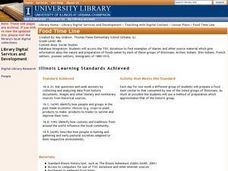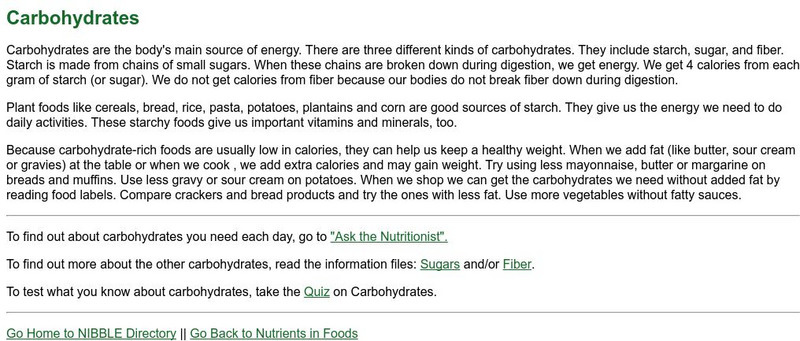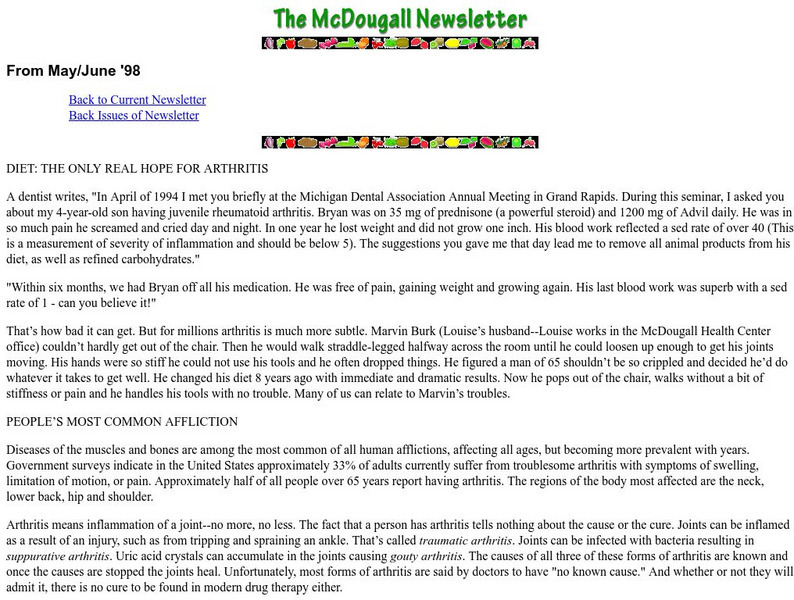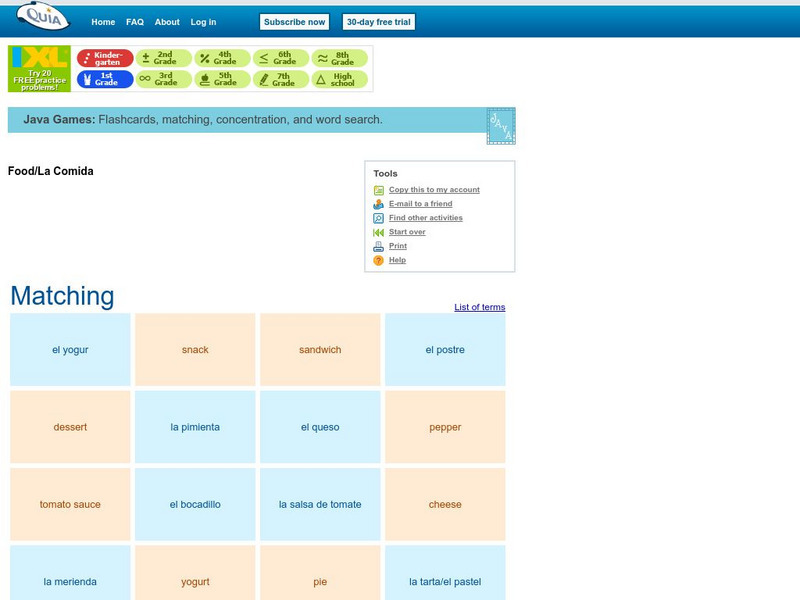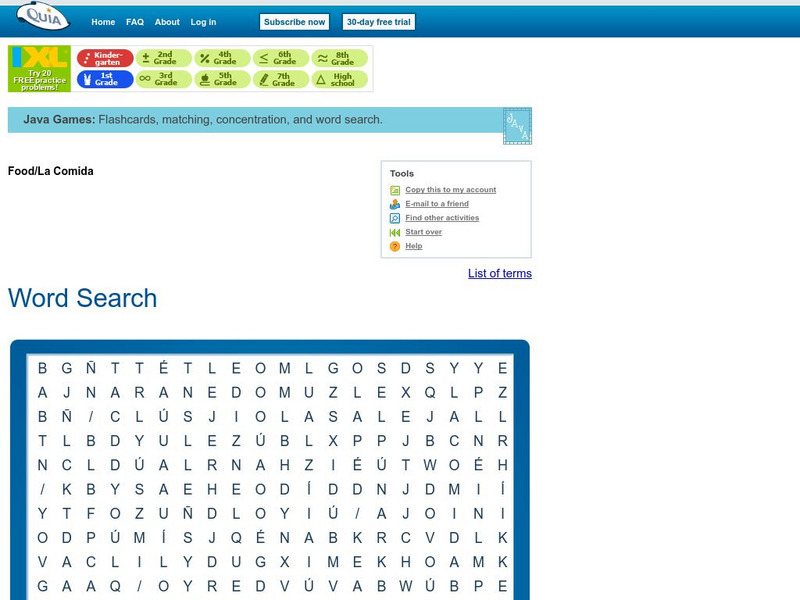Curated OER
Food for Thought
Third graders conduct a survey of their class' favorite foods voting on 3-4 favorites overall. They then go to the computer lab and examine how to produce a horizontal bar graph by graphing the favorite foods of the class.
Curated OER
Healthy Snacks
Ninth graders examine teen attitudes towards snack food merchandising in schools and what contributes to successful food merchandising. The context for the lesson is found in the research conducted from the Health Canada Website.
Curated OER
Seminole Traditional Foods
Students will identify and label Seminole foods in Miccosukee (native language) and English. They construct a chart on traditional Seminole foods and prepare a traditional Seminole meal.
Curated OER
Chuukese Dinner (high School)
Students read journal entries about having dinner with a Chuukese family. Using this information, they identify which foods sound appealing and compare and contrast Micronesian and American foods, fruits and vegetables. In groups, they...
Curated OER
Foods and Nutrition
Young scholars are introduced to the names and colors of eight fruits. They participate in jazz chants, discuss favorite fruits, match vocabulary cards, complete a worksheet and write in journals.
Curated OER
There Are Algae in Your House!
Students complete a worksheet at home stating what types of food they have at home with algae in it. They, in groups, compare with each other what they have on their worksheet.
Curated OER
Food Time Line
Fourth graders make a timeline to include the immigrants of 1880-1910. Then, in groups, they research foods consumed, purchase, and serve it to the class.
Curated OER
Let's Read! D.W. The Picky Eater
Learners read D.W. The Picky Eater, and identify one new food they would like to try.
US Food and Drug Administration
U.s. Food and Drug Administration: The Food Label
Read about how the U.S. Food and Drug Administration, through the use of food label, plans to make Americans informed consumers of food. Here, you can learn about the sections of the food label and read definitions of the terms like...
City University of New York
Brooklyn College: Chinese Food: Two Texts
Contains two articles on Chinese Food. One of the articles is entitled, "A Spanish Diplomat Visits China" and the other article is entitled, "Using Chopsticks". These are both interesting articles to read on the subject of Chinese food.
Curated OER
Kids Health: What Do Food Labels Really Say?
An overview of food labeling history and importance, how to read food labels, basic components of a food label, and a comparison of different foods.
University of Massachusetts
Nutrients in Foods: Carbohydrates
This website offers a brief discussion of the function of carbohydrates. It mentions types and definitions of the three types of carbohydrates: starch, sugar and fiber. Links to related information is provided
PBS
Pbs Teachers: An Apple a Day [Pdf]
Distinguish between fruits and vegetables through a sorting game, learn to appreciate new foods through a tasting activity, create funny food friends with magazine cutouts of healthy foods and dramatize preparing a health meal or snack.
Other
Diet: The Only Real Hope for Arthritis
In addition to discussing the use of a vegan diet to lower the risk of arthritis, this article also talks about diet as a means of preventing other diseases and disorders.
Quia
Quia: Food: La Comida Matching
This site is an educational and fun way to learn and review food items. Match the food item in Spanish with the food item in English until all the selections have been matched. You can select a different set of words by pressing the new...
Quia
Quia: Food/la Comida Word Search
Horizontally, vertically, diagonally, forwards or backwards, try to find the Spanish foods in this interactive word search game, an excellent way to practice with learning new words.
PBS
Pbs Teachers: Smarter Food Processing Techniques
Test your knowledge about the foods you eat by taking a short quiz. Match products to their ingredients, answer questions about nutritional values and compute the amount of fruits and vegetables consumed per year.








